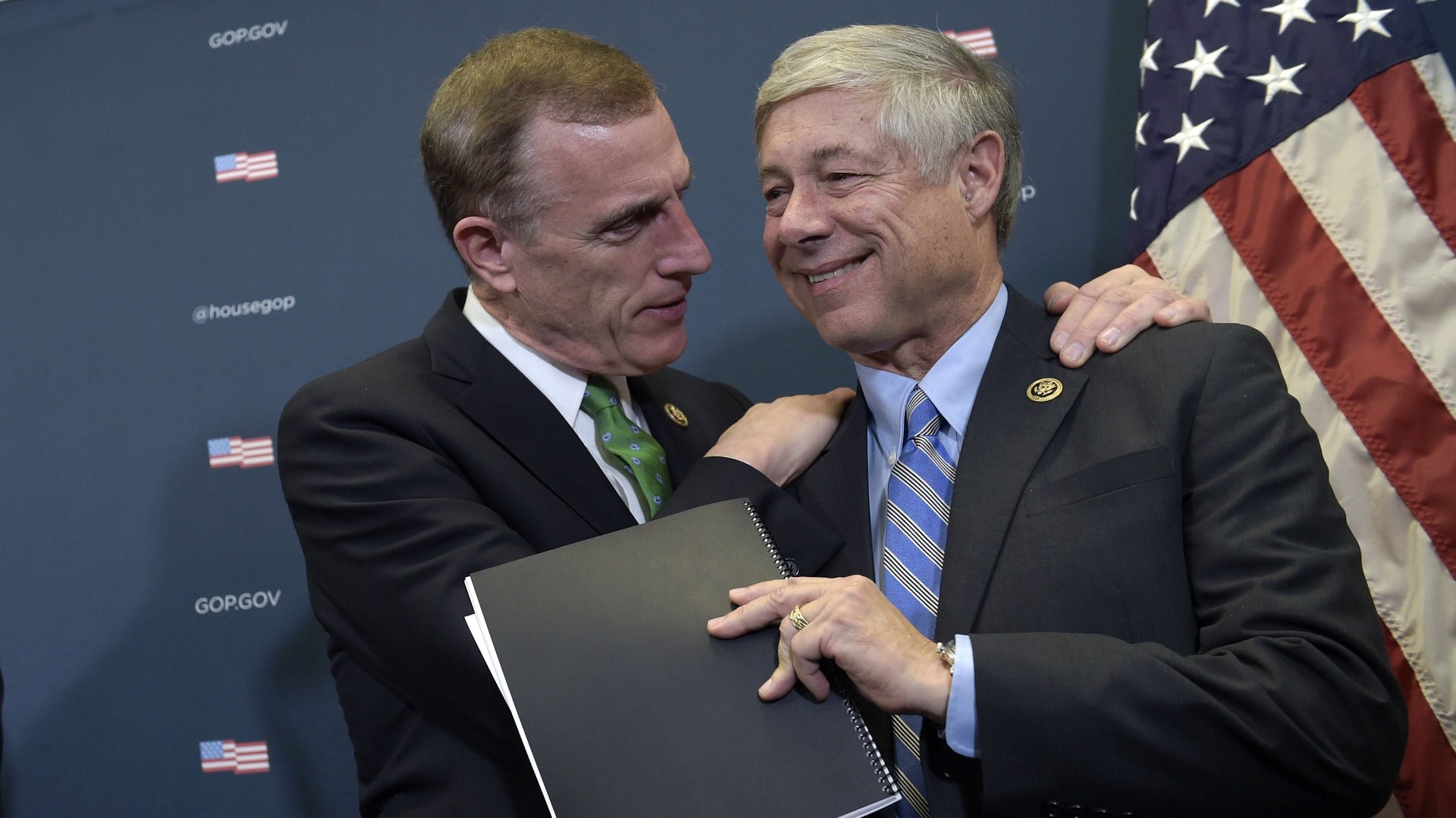To fund projects like the Cancer Moonshot, Congress had to strip away some of the FDA’s most important regulatory powers
Late on Nov. 30, the US House of Representatives voted in sweeping favor across both sides of the aisle (392-26) on a $6.8 billion medical research bill. It’s expected to pass in the Senate, and it has support from the Obama administration.


Late on Nov. 30, the US House of Representatives voted in sweeping favor across both sides of the aisle (392-26) on a $6.8 billion medical research bill. It’s expected to pass in the Senate, and it has support from the Obama administration.
The 21st Century Cures Act is great for medical research. It provides funding for issues like fighting the opioid crisis and to continue massive government-sponsored medical research projects like the BRAIN Initiative, the Precision Medicine Initiative, and vice president Joe Biden’s Cancer Moonshot. It also provides finances for mental health programs, including suicide prevention on college campuses, screening for depression in women who are pregnant, and support for young children who have mental health or behavioral problems.
All of this medical research spending, though, came with a regulatory compromise. Tucked in the folds of the bill were a number of new laws that allow the US Food and Drug Administration (FDA) to speed up the approval process for a range of treatments.
For example, the Cures Act allows for the expedited approval of new uses of drugs that had been approved previously for other conditions with just anecdotal case studies providing evidence that they work, instead of the usual randomized clinical trials. On the one hand, this means that treatments could reach patients more quickly, and save more lives. But on the other, it means that patients could be exposed to therapies whose risks aren’t completely understood.
There’s also a section of the Act that “expedite[s] the development and availability of treatments for serious or life-threatening bacterial or fungal infections in patients with unmet needs.” That sounds great in theory, but in practice, these drugs might be approved for use in specific patient populations without ever being tested in those people.
According to NPR, some 1,445 lobbyists from 400 organizations worked to sway lawmakers on this bill. Over 1,300 were from groups in favor of the bill, including deep-pocketed pharmaceutical companies in favor of the expedited approval process. “It really is a David and Goliath issue of where the money is,” Diana Zuckerman, the president of the nonprofit National Center for Health Research (which did not lobby for the bill), told NPR.
The Act will go to the Senate next week, where it is expected to pass. Notably, though, Democratic senators Elizabeth Warren from Massachusetts and Bernie Sanders from Vermont have vocally opposed it because of the softened regulations. On Nov. 28, Warren called the bill “extortion,” implying the benefits to the patients with additional medical research would be greatly outweighed by the risks of diminished regulation. The same week, Sanders said in a statement, “This is a bad bill which should not be passed in its current form. It’s time for Congress to stand up to the world’s biggest pharmaceutical companies, not give them more handouts.”